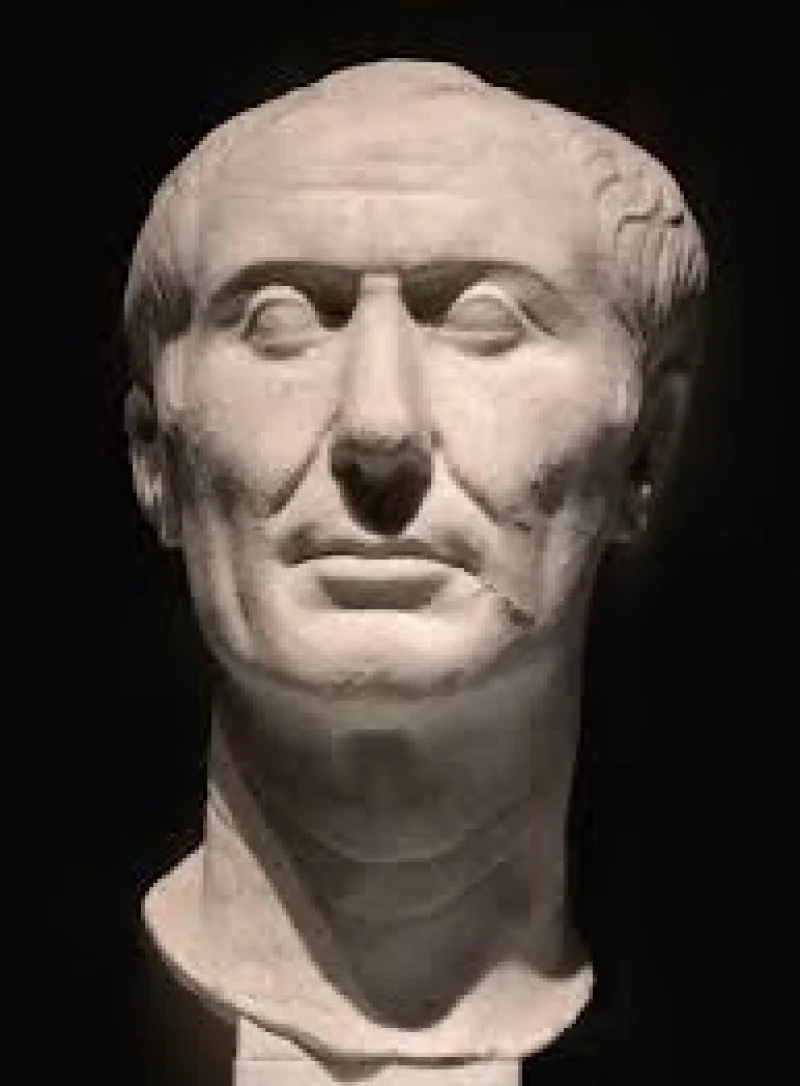Short Summary
Julius Caesar was a pivotal figure in Roman history, renowned for his military prowess, political acumen, and influential reforms. He played a crucial role in the transition from the Roman Republic to the Roman Empire. His dictatorship, military conquests, and eventual assassination on the Ides of March left an indelible mark on history, making him a legendary figure in both political and military circles.
Early Life & Education
Born in 100 BCE into the patrician Julian clan, Julius Caesar was part of a family that claimed descendance from Iulus, son of the Trojan prince Aeneas. His father, also named Gaius Julius Caesar, was a praetor, and his mother, Aurelia, was of noble birth. Caesar received a traditional education, studying rhetoric, philosophy, and law, which prepared him for a public career. Influenced by his uncle, Gaius Marius, a prominent general and statesman, Caesar developed an early interest in politics and military affairs.
Career Highlights
Caesar's career was marked by his rapid ascent through Roman political ranks. He first gained prominence as a military leader in the Gallic Wars, expanding Roman territory and securing his reputation as a formidable general. His crossing of the Rubicon River in 49 BCE was a decisive act that led to a civil war, ultimately culminating in his appointment as dictator for life in 44 BCE. His tenure as dictator saw significant reforms, including the Julian calendar, which had a lasting impact on Roman society.
Major Achievements
- Conquest of Gaul: Expanded Roman territories by annexing Gaul, enhancing Rome's power and wealth.
- Crossing the Rubicon: Initiated a civil war that led to his ultimate control over Rome.
- Julian Calendar: Reformed the Roman calendar, introducing a system that is the basis of the modern calendar.
- Dictatorship: Appointed dictator for life, centralizing power and paving the way for the Roman Empire.
- Political Reforms: Implemented various reforms to centralize and stabilize Roman governance.
Famous Quotes
- "Veni, vidi, vici." ("I came, I saw, I conquered.")
- "The die is cast." (Upon crossing the Rubicon)
Interesting Facts
- Caesar was the first Roman to be deified posthumously.
- He was kidnapped by pirates as a young man and later captured and crucified them after his release.
- His assassination involved a conspiracy of over 60 senators, led by Brutus and Cassius.
- Caesar was known for his clemency, often pardoning his enemies.
- The month of July is named in his honor.
Legacy / Influence
Julius Caesar's influence extends beyond his military conquests and political reforms. His centralization of power set the stage for the rise of the Roman Empire. His life and assassination have inspired countless works of art, literature, and political discourse, emphasizing themes of power, betrayal, and ambition. His legacy endures as a symbol of autocratic rule and the complexities of leadership.
FAQ
Q: Why is Julius Caesar famous?
A: He is famous for his military conquests, political reforms, and role in the transition from the Roman Republic to the Roman Empire.
Q: What were some of his major achievements?
A: Major achievements include the conquest of Gaul, crossing the Rubicon, and implementing the Julian calendar.
Q: How did Caesar die?
A: He was assassinated on the Ides of March in 44 BCE by a group of Roman senators.










